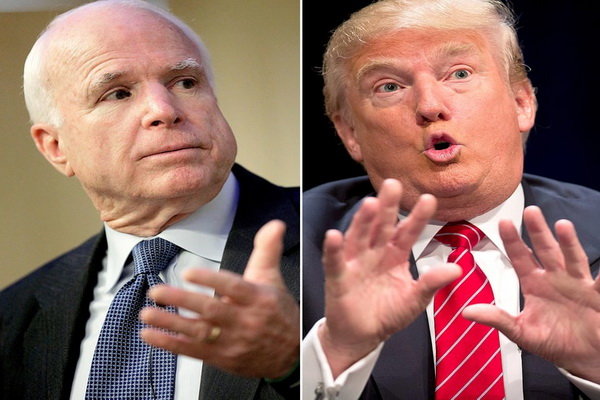McCain endorses Boeing's new Iran deal, says it’s ‘completely legal’

TEHRAN – Senator John McCain, a Republican from Arizona who has been a leading voice against the Iran nuclear deal, threw his full support behind Boing’s new agreement with Iran’s Aseman Airlines, saying there is little Congress can do to block the plane sale.
“I have opposed the Iranian agreement and I am not interested in doing anything to help the Iranians but what they’ve done is completely legal,” McCain said, according to a Bloomberg report.
“They’ve got the money and it’s not a weapons system, so it doesn’t require any involvement from the Congress.
Also, Senator Ben Cardin, a Democrat from Maryland, said there isn't much Congress can do to stop the deal.
Senator Marco Rubio, however, told reporters in the Capital: “It’s concerning,” when asked about the deal. Asked if he could or would do anything to block it, the Florida Republican said, “Maybe.”
Boeing Co. landed its second jetliner sale to the Iranian airline since the 1970s, a $3 billion deal that sets up a test of the planemaker’s ties with President Donald Trump.
The pact with the airlines to purchase 30 of Boeing’s 737 Max planes adds to a separate $16.6 billion agreement with Iran Air, the country’s flagship carrier, for 80 passenger planes worth $16.6 billion under the Obama administration in December, which the Chicago-based manufacturer is still finalizing.
The new agreement also provides the Iranian airline with an option to buy 30 additional 737 Max planes. Deliveries of the single-aisle jet are scheduled to start in 2022.
If completed, the transactions would be the first U.S. aircraft exports to Iran since the Shah era, overtaken by the Islamic revolution in 1979.
OFAC administers and enforces economic and trade sanctions based in the U.S. The body also manages trades and transactions dealing with foreign states, organizations, and individuals targeted by U.S. foreign policy and national security goals and operates as an agency of the U.S. Department of the Treasury.
The recent deal, is the first sizable U.S. business transaction announced with the Islamic republic since Donald Trump was elected president.
In its statement Tuesday, Boeing touted the potential of the 737 deal with Iran to boost U.S. jobs, saying the agreement “creates or sustains approximately 18,000 jobs in the United States,” citing Commerce Department calculations.
Boeing’s latest accord with Iran puts the Trump administration in the awkward position of choosing between taking a harsher stance against Iran and boosting a major manufacturer, one of the U.S.’s largest exporters.
On the campaign trail, Trump maligned the nuclear agreement as “horrible” and threatened to renegotiate.
However, by disrespecting the nuclear deal, if Trump chooses to do so, he will be considered in the eye of the Americans as not making good on his campaign promises to boost manufacturing jobs.
Also, one thing that makes it less likely for the Trump administration to thwart the deal is competition with France’s Airbus, which competes closely with Boeing for international business.
In January 2016, Iran Air signed agreements to buy 118 planes from Airbus, estimated to be worth some 22.8 billion euros ($25 billion), three of which already delivered.
“Boeing has to be everywhere that Airbus is,” said Loren Thompson, chief operating officer of the nonprofit Lexington Institute, which receives funding from Boeing.
One such big deal between the U.S. and Iran is expected to unlock the floodgates for trade with Tehran.
Tehran-based analyst Saeed Leilaz said he believed the deal would encourage other Western companies to enter Iran despite the political rhetoric.
“This will boost the previous agreement between Boeing and Iran Air while indicating the Trump administration is willing to continue to work with Iran despite various differences on the missile program and Iran’s regional role,” Leilaz said.
However, financing the multibillion-dollar purchases will be a challenge given the restrictions still in place on lenders doing business with Iranian companies, said aerospace consultant Richard Aboulafia, Bloomberg reported.
Aircraft lessors may be hesitant to provide financing if the threat of renewed sanctions raises a risk they couldn’t reclaim the planes if Iranian carriers defaulted.
AK/PA
Leave a Comment